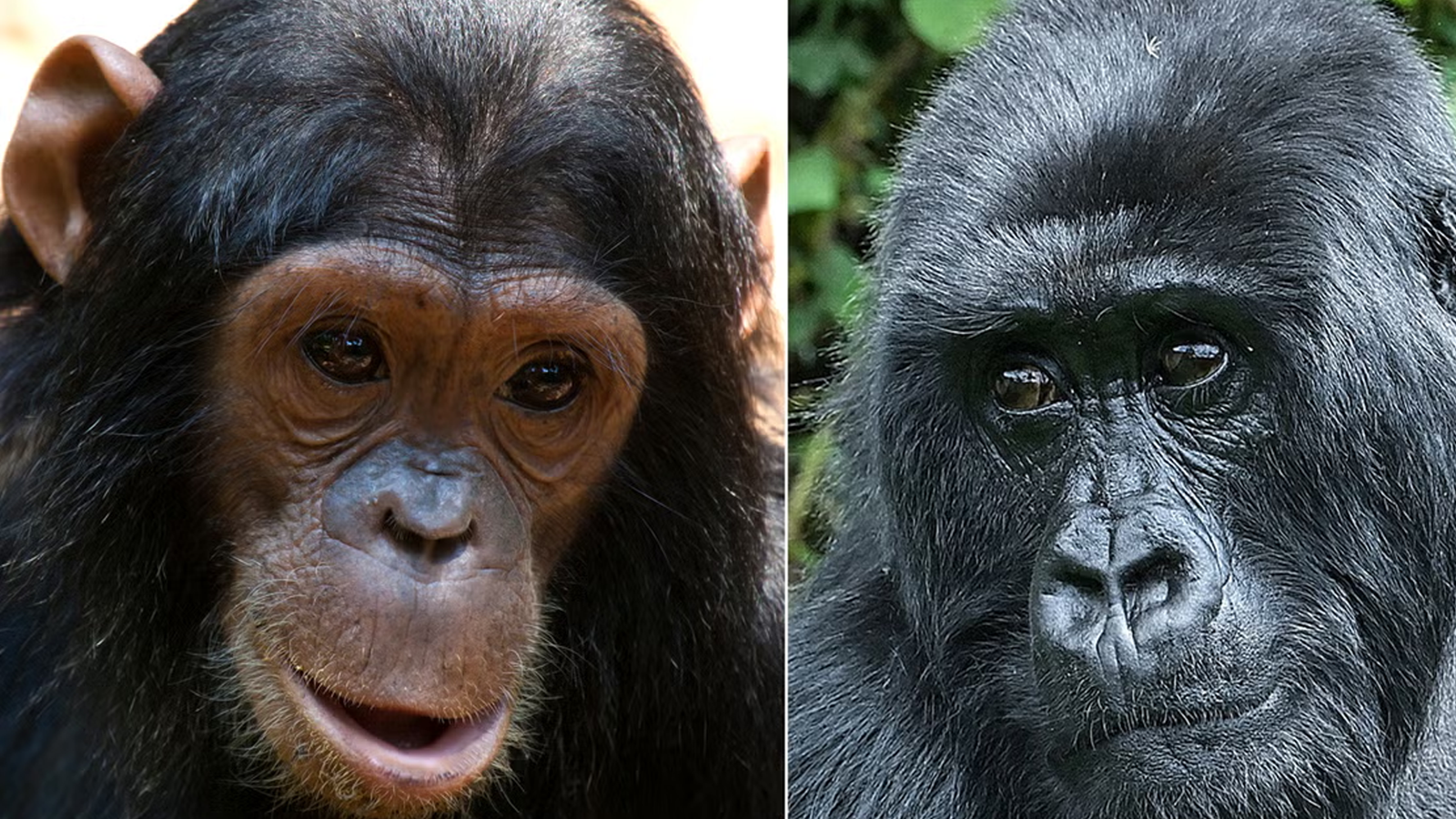Facts About Chimpanzees
Chimpanzees are hominids – a group that consists of all modern and extinct Great Apes. Four species of chimpanzees are known and all of these exist in Africa. These four species are the eastern, western, central, and Nigerian-Cameroon chimpanzees. The eastern chimpanzee is a species that lives in many African countries including Uganda, Rwanda, Democratic Republic of Congo (D.R.C), Burundi, Tanzania, Central African Republic (C.A.R), and Sudan.
Chimpanzees are our closest living relatives.
It is believed that humans and chimps descended from a common ancestor that lived about 7 million years ago. Coupled with the fact that chimps move more by climbing and swinging but also knuckle-walking and in some incidences on two feet, it is no doubt that they are our closest living relatives.Chimpanzees are highly intelligent.
Chimpanzees have been seen using self-made tools such as sticks to withdraw termites from their mounds, stones to crack and open hard nuts, and leaf sponges to collect drinking water. It was also observed that these traits were most common in chimpanzees that walked a long distance in the wild.Chimpanzees are endangered.
Worldwide, chimpanzees are estimated to be between 170,000 and 300,000 individuals. This dwindling figure put chimpanzees on the IUCN Red List as endangered. Chimpanzees also have a slow reproductive rate where most females bear a baby once every 5 years. The dwindling figure is also a result of threats such as poaching and habitat loss due to logging plus diseases which contribute to the mortalities.


